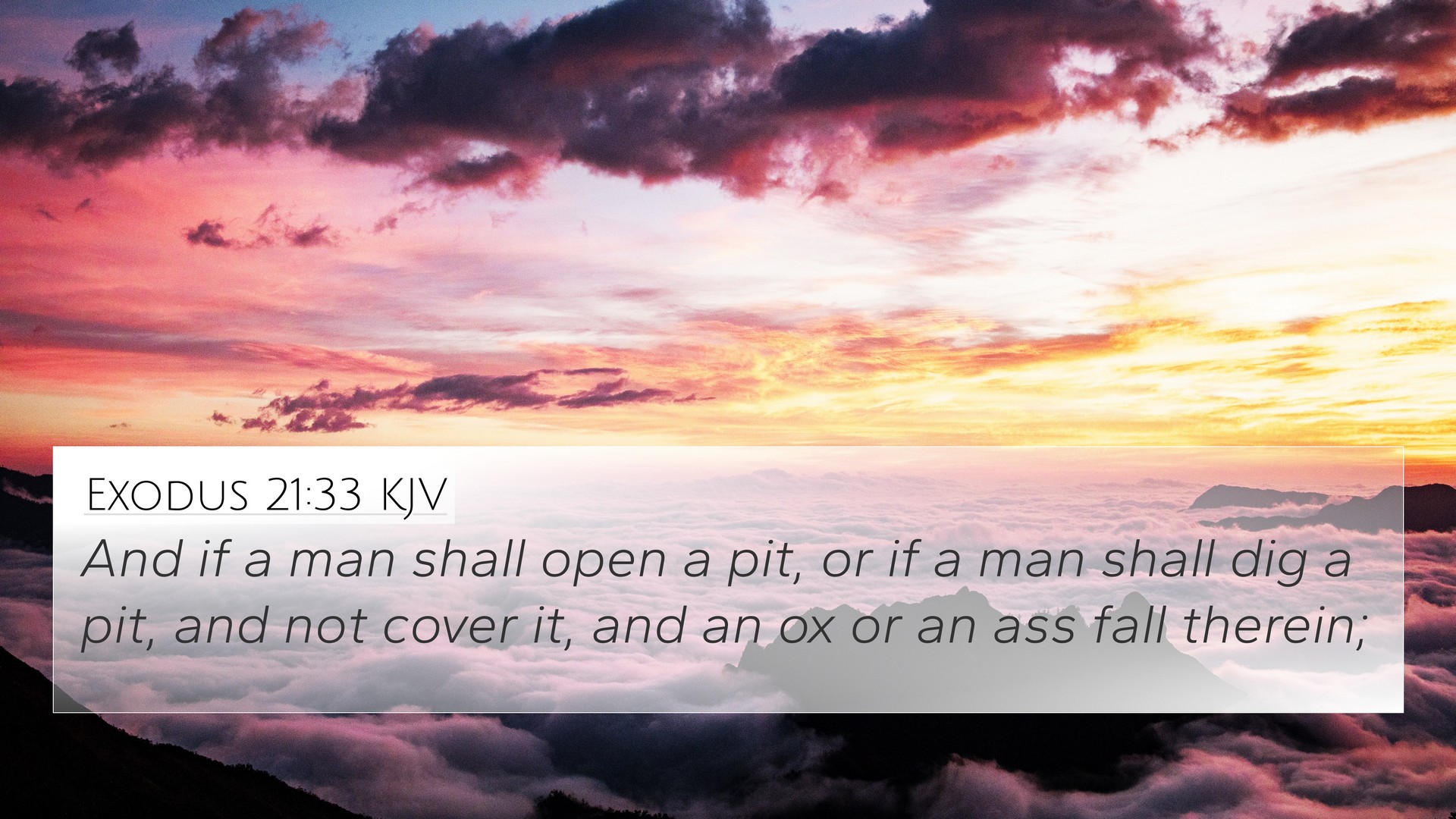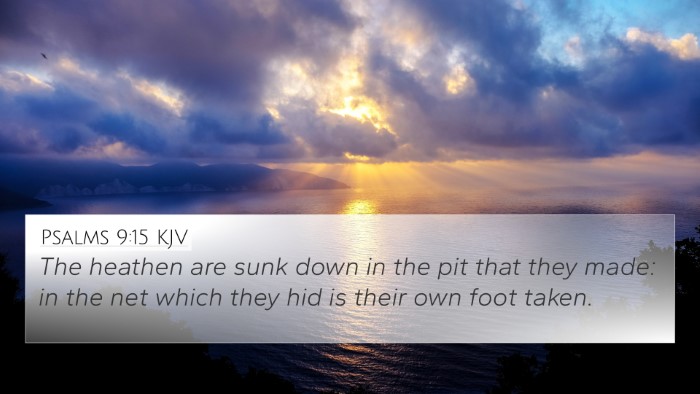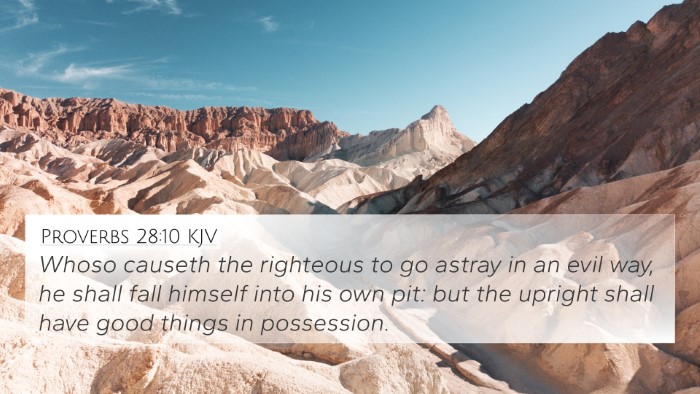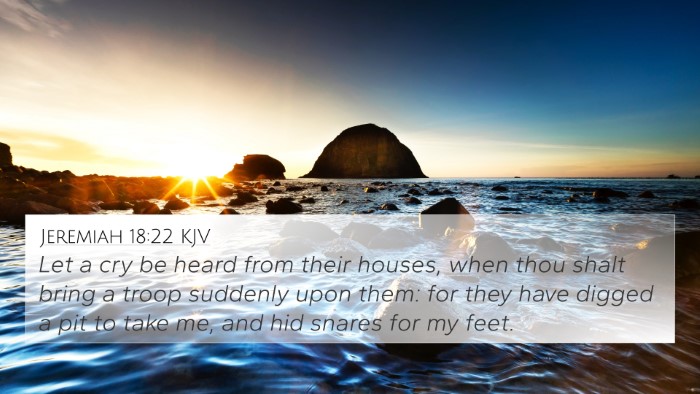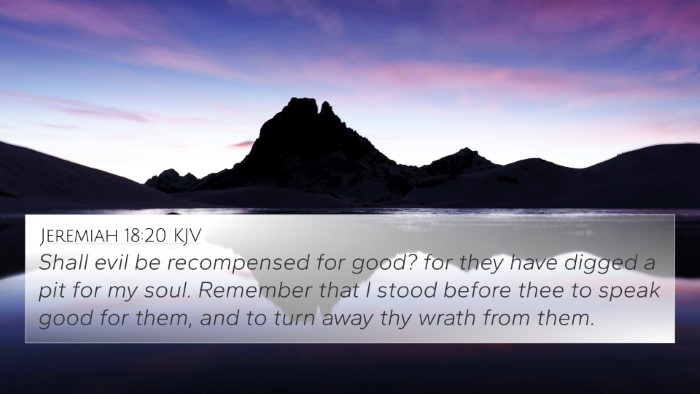Interpretation of Exodus 21:33
Exodus 21:33 states: "And if a man shall open a pit, or if a man shall dig a pit, and not cover it, and an ox or an ass fall therein,
This verse highlights the importance of responsibility and caution in one's actions and the repercussions of negligence.
Summary of Meaning
The context of this verse involves laws regarding property and liability. It establishes the principle of accountability, particularly regarding the treatment of others' animals and properties.
- Responsibility: The owner of the pit is deemed responsible for any animals that may fall into it due to his negligence.
- Justice: This law promotes fairness and justice within the community, ensuring that individuals are accountable for their actions.
- Caution: It emphasizes the need for cautious behavior to prevent harm to others.
Public Domain Commentary Insights
Matthew Henry's Commentary
Matthew Henry emphasizes that this law reflects God's concern for the safety of animals, asserting that even beasts deserve protection and humane treatment. He interprets the pit as a metaphor for the dangers of neglecting moral duties.
Albert Barnes' Notes
Albert Barnes points out that the law illustrates a principle common in civil law—the obligation to prevent harm through negligence. He notes that the consequences of failing to secure the pit demand restitution, highlighting societal order and personal responsibility.
Adam Clarke's Commentary
Adam Clarke discusses the broader implications of care and liability. He remarks that this verse underscores an ethical framework, asserting that those who own property must ensure it does not pose a danger to others, reinforcing the concept of community responsibility.
Related Cross-References
This verse has several cross-references that provide further context and thematic connections:
- Exodus 22:5: Discusses the responsibility of an owner when livestock damages another’s property.
- Deuteronomy 22:1-4: Encourages returning lost animals and caring for neighbors’ property.
- Luke 14:5: Jesus exemplifies the duty to care for animals in distress.
- James 4:17: Indicates that knowing good and not doing it is sin—paralleling negligence to moral failing.
- Proverbs 27:23-27: Advises on being aware of one’s duties regarding livestock and possessions.
- Matthew 18:15-17: Teaches about responsibility towards one another in the context of conflict resolution.
- Galatians 6:5: Alludes to bearing one’s own burdens, relating to personal accountability.
Connections and Themes
This verse opens a dialogue on various themes connecting to communal ethics, responsibility, and the treatment of others' property. These connections invite deeper exploration of Biblical principles of justice and mercy.
Inter-Biblical Dialogue
Through cross-referencing Biblical texts, we can delve into the systematic understanding of responsibilities laid out both in the Old and New Testaments. The relationships between laws in Exodus and the teachings of Jesus establish a comprehensive view of ethical behavior within the faith.
Resources for Study
For those interested in exploring these themes further, there are many tools available:
- Bible Concordance: Tools for finding specific terms and themes across scripture.
- Bible Cross-Reference Guide: Systems designed to navigate through complex connections within the Bible.
- Comprehensive Cross-Reference Materials: Available resources that assist in thematic Bible studies.
Conclusion
Exodus 21:33 serves as a foundational verse that illustrates the significance of responsibility in moral conduct. By examining Biblical themes through cross-referencing, one can gain deeper understanding and insight into the interconnectedness of scripture, enriching one's study of the Bible.
